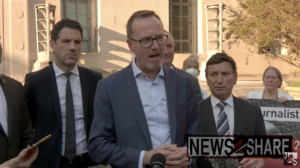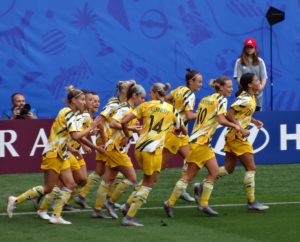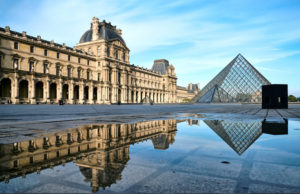Politics Down Under
One of George Bush's staunchest allies in the war is facing stiff competition at home. Australian Prime Minister John Howard is currently losing in the polls to a dynamic opponent in a political battle that could foreshadow the American election.MELBOURNE, Australia — In describing the average voter’s view of the economy, which opposition party politician said: “If things are going so well, why am I finding it so tough?”
Guessing Hillary Clinton, Barack Obama or John Edwards would be reasonable, but wrong. The words are those of Kevin Rudd, the leader of the Australian Labor Party who, if current polling numbers hold, will be elected this fall as Australia’s next prime minister.
The if is important — the 11-year incumbent, John Howard, is one of the toughest politicians in the democratic world and will not go down without a fierce fight. The election campaign here is an important test of whether good economic numbers are enough to re-elect an incumbent party when voters, even in the midst of affluence, feel stressed, overly in debt and time-poor in their personal lives.
Julia Gillard, the Labor Party’s deputy leader, cites all these factors in casting the campaign as a choice between the Howard government’s economic record and “fresh ideas, a government in touch with people’s needs, and fairness at work.” She and just about everyone else expect the government to run “a fear campaign based on the economy,” as she puts it, rooted in the claim that Rudd’s Labor Party would wreck what Howard has achieved.
Although Howard is running behind Rudd in the polls, his approval ratings hover around 50 percent. This leads one of the prime minister’s campaign advisers to argue that by the time voters go the polls — the betting is that Howard will set the election for late October — they will default to re-electing him, as they have three times since he first came to office in 1996.
Howard has been the master of a classic form of conservative politics. As Wayne Errington and Peter van Onselen argue in a new biography, he has “managed to balance the interests of those welcoming of globalization with those hostile to it” by “fusing his long-held social conservatism with his embrace of globalization and free markets.” The rush of economic change is tempered by a defense of old Australian values — and some well-timed symbolic gestures on immigration that appeal to Australia’s equivalent of the Lou Dobbs-Pat Buchanan electorate.
The key to Howard’s politics are the “aspirational” voters, the middle class in the nation’s outer suburbs who long for material improvement in their lives. This election is about aspiration and its discontents.
Some of the restiveness arises from discontent with the conservative government’s new law on workplace rules, which in Labor’s view has sharply shifted the balance of power in favor of employers.
Labor gives a traditional values twist to its argument against the new rules. Kristina Keneally, a minister in the state Labor government in New South Wales, says they “put in jeopardy people’s ability to make commitments to their communities and families,” such as “whether you can coach your child’s soccer team if they can change your shift.”
Rudd, in the meantime, has narrowed his party’s differences with the government on economic management and cultural issues and focuses relentlessly on the future. His promises to act on global warming and expand broadband Internet access work on a symbolic as well as a substantive level.
Rudd has also done something unusual for an Australian center-left politician: He has spoken openly about his Christian faith and declared his admiration for Dietrich Bonhoeffer, the German theologian and pastor executed by the Nazis for his role in the plot to kill Hitler.
“What he worked out in his theological career,” Rudd said in an interview, “was the principle that if you forget about the life, the well-being and the interests of those below, you have lost your Christianity.”
Rudd’s image as “St. Kevin” took a dent over the weekend when it was reported that while on an official trip to New York four years ago, he visited a strip club with the editor of the New York Post.
But it was not clear how much the story would hurt Rudd as other politicians started confessing their own visits to such establishments and Labor charged Howard’s side with dirty tricks in pushing the story (which Howard’s side denied). The visit seemed out of character for the strait-laced Rudd, who said he stayed only 40 minutes at the club and acknowledged he was drunk — indeed, as one Australian paper put it, he “flagellated himself for the umpteenth time” on Monday.
The surfacing of the story, however, showed how high the stakes are in Australia this year. There is a restlessness that has echoes in the United States. Is aspiration enough? Australians will tell us soon.
E.J. Dionne’s e-mail address is postchat(at)aol.com.
© 2007, Washington Post Writers Group
Your support matters…Independent journalism is under threat and overshadowed by heavily funded mainstream media.
You can help level the playing field. Become a member.
Your tax-deductible contribution keeps us digging beneath the headlines to give you thought-provoking, investigative reporting and analysis that unearths what's really happening- without compromise.
Give today to support our courageous, independent journalists.






You need to be a supporter to comment.
There are currently no responses to this article.
Be the first to respond.